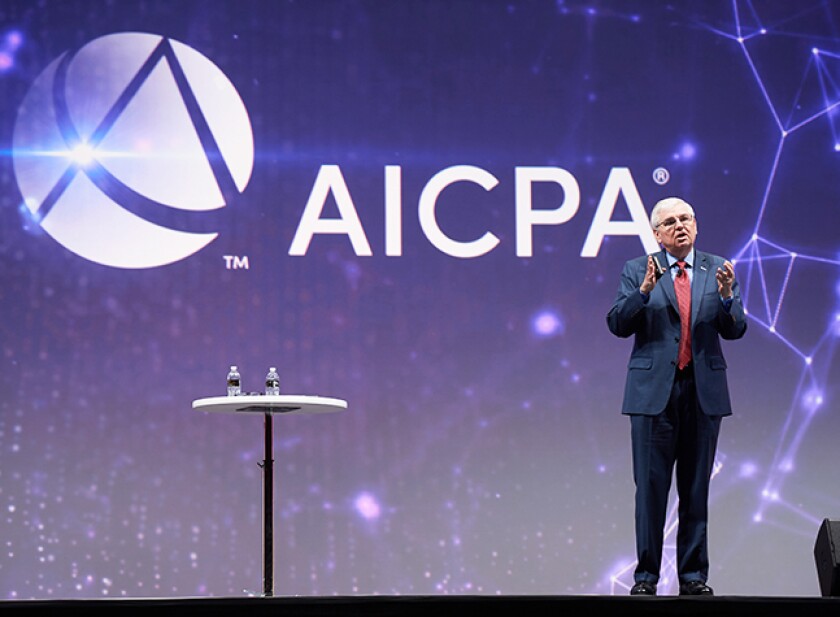The coronavirus outbreak has caused economic activity to crater, and Visa says its focus on services, partnerships and e-commerce has provided stability and a route to growth.
“The future will have uncertainty associated with it; there were things that declined in the quarter, but we did see growth in a number of areas,” said Al Kelly, Visa’s CEO, during Tuesday’s earnings call.
For the quarter ending June 30, Visa reported earnings of $1.06 per share, or a decline of 23%; and revenue of $4.84 billion, or a decline of 17% from the prior year. Payment volume declined 10% to $1.95 trillion. Wall Street analysts were expecting Visa to report earnings of $1.02 per share on $4.76 billion in revenue.
For the prior year quarter, Visa reported earnings of $1.37 per share on revenue of $5.84 billion. Analysts are projecting a decline for the full year of 7.5%, to $5.03 per share. Visa’s fiscal year ends in October.
Visa did not provide an outlook for the full year, citing the pandemic. Mastercard reports earnings on Thursday morning before the market opening. Amex last week reported an 85% decline in second-quarter net income, though it reported some recovery in spending categories outside travel, which was still down 75% compared to the start of the pandemic.

Visa reported growth for e-commerce, debit, tap to pay, click to pay, and success in partnerships. That wasn’t enough to totally offset the decline in payments or provide future visibility, but it was enough for Kelly to project confidence for the long term. “Many aspects of Visa’s business have proven to be resilient and we are continuing to invest,” Kelly said.
Visa Direct’s growth in transactions was greater than 60% during the quarter, Visa’s revenue from “value added services,” or non-payment related services for clients, grew in the mid-teens, and tap to pay grew globally. About 50 countries had growth in tap to pay of more than 5%, 10 countries grew by more than 10% and 55 countries raised their transaction limits for tap to pay.
The Financial Accounting Standards Board plans to propose that private companies and nonprofits get an extra year to implement the lease accounting standard while also giving private franchisor companies an extra year for revenue recognition.
The agency overhauled its system for the Paycheck Protection Program on Wednesday. Lenders hope it addresses the access issues and a crash that bedeviled the effort’s first week.
The American Institute of CPAs has posted a set of frequently asked questions and answers aimed at helping CPAs and their clients with tax filing and tax relief in response to the novel coronavirus pandemic, while pointing out the various shortcomings in the federal government’s response.
In the U.S., 80 million contactless cards were added in the first four months of the year, and Kelly predicted contactless will accelerate as people return to offices and pay for transit fare and smaller purchases near and around their workplaces. Additionally, Visa’s consulting service was working on 60% more projects than the prior year.
Like Amex, travel loss remains a challenge, as most borders remain totally or partially closed. Visa reported travel-related recovery in certain corridors, such as France to Switzerland, has recovered quickly, though most borders remain closed. Consumer travel recovery for local trips will recover faster than longer treks, the card brand reported. Within the EU, travel-related payments have increased 40% since borders reopened about a month ago, Visa reported.
Kelly earlier projected concerns about the pandemic during Visa’s previous earnings call in April, noting a strong start to 2020 had been upended by closures and a fast and severe economic downturn. Visa’s pressure was partly offset by a dramatic move away from cash to digital payments, a trend that’s likely to be permanent, according to Kelly, who nonetheless said it was too early to know how much the move to e-commerce would cushion other economic softness.
Investors pressed Kelly on how Visa may respond to regulatory pressure on large technology companies, which are scheduled to testify before Congress on competition issues this week. Visa was part of Facebook’s Libra project, but departed in 2019 partly because of regulatory pressure on Facebook.
Kelly did not comment directly on how technology firms may be regulated, but said Visa relies on the companies to bolster its payments revenue.
“We have relationships with all of the companies that you would consider big tech,” Kelly said. “These big techs have attracted lots of users and some of their activities will involve money movement. We want to be there for them and we’ll leave it to those companies to figure out any of the regulatory pressures they are facing.”
Kelly defended Visa’s compliance with the Durbin Amendment to the Dodd-Frank law, which requires choice in routing for debit transactions. Some merchant groups have advocated expanding the amendment during the current economic crisis, which has especially hurt small businesses.
“Visa is fully compliant with all requirements of the Durbin Amendment,” Kelly said. “Merchants are free and often do route debit transactions to other networks. I think we’re in good shape with Durbin.”
Kelly additionally addressed the recent social activism in the wake of George Floyd’s murder by police in Minneapolis. The incident has led to several months of peaceful protests across the U.S. and other nations, as well as a reexamination of diversity in the corporate world.
“For four centuries Black women and men hae suffered discrimination and racism. It must stop,” Kelly said, adding Visa has taken several steps to address racial inequality — including donations to civil rights organizations, forums on diversity within the company and guidance for leaders in the company to encourage a more inclusive corporate culture. Visa also said it would increase the percentage of underrepresented executives and staff members over the next five years.






